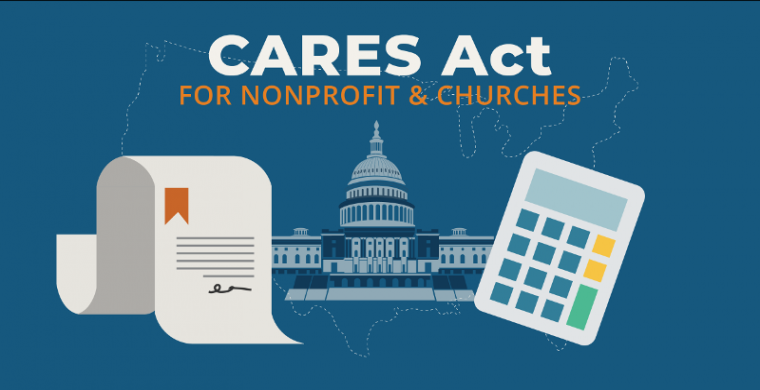WHEN CHURCHES TAKE GOVERNMENT MONEY
NEW ANALYSIS
By David W. Virtue, DD
www.virtueonline.org
July 14, 2020
When Robert Francis "Beto" O'Rourke was running for President, he said that he would remove the tax-exempt status of religious organizations that oppose same-sex marriage. At CNN's Equality Town Hall, O'Rourke asserted that "there can be no reward, no benefit, no tax break for anyone or any institution, any organization in America that denies the full human rights and the full civil rights of every single one of us". O'Rourke's comment infuriated a swath of religious and conservative leaders.
From the perspective of The Episcopal Church, this posed little problem. By 2018, General Convention had passed B012 legitimizing same sex marriage, mandating that all the Church's bishops must allow homosexuals and lesbians to freely marry or face possible expulsion from the church. (The Episcopal Church is currently awaiting the outcome of a hearing over Albany bishop William Love's refusal to bend the knee to the demands of B012.)
TEC has already fully embraced abortion in the name of women's rights. The Episcopal Church opposes statutory limits on abortion. The embrace of the culture and queerdom was an easy call, sanctifying sodomy in the pulpit and allowing practicing homosexuals to perform priestly duties at all levels of the Church. But It has come at great cost; churches are emptying faster than a fire drill.
Then COVID-19 hit and became a game changer for the Church's very survival.
Congress designated $349 billion for the PPP in a $2 trillion relief package approved in late March in response to the economic fallout from the pandemic and followed with another $310 billion in late April when the earlier funds were depleted.
The government put in place several programs allowing businesses and churches to apply for money using the Paycheck Protection Program (PPP) and other government handouts.
Across the country, churches braced themselves as buildings shut down, services "zoomed" and church plates emptied. Millions of dollars were suddenly lost as parishioners realized that with a combination of factory closings, increasing unemployment and lost income, that paying the rent or mortgage and putting food on the table was a bigger priority than church coffers.
Enter the federal government and its multi-pronged handouts to individuals', businesses and churches. Money was plentiful and the churches reached out with both hands to grab what they could. And grab they did.
The Episcopal Bishop of Texas, C. Andrew Doyle, might just as well have backed up a Brinks truck to pick up the money. "We are looking at a $25 million loss for the year," he said. The Texas bishop described the loss as "huge" across his 160 congregations in the state. Doyle said the federal funds were primarily used to pay personnel, from pastors and ministers to administrative and custodial staff.
St. Martin's Episcopal Church, Houston, the largest Episcopal parish in America asked for and received between $2 million and $5 million in PPP loans. The church reported 174 jobs retained from the funding, including the six-figure rector.
Hundreds of Houston-area churches received tens of millions of dollars in forgivable government loans during the COVID-19 pandemic, according to an analysis of federal records.
As churches shuttered their doors and pivoted from in-person to online-only services, weekly offerings steadily declined.
A local radio station KHOU 11 investigated CARES Act Payment Protection Program (PPP) data released by the Small Business Administration and found 233 Houston-area churches had received forgivable federal loans of $150,000 or more. The collective total was at least $67 million, but exact figures were unclear since the data only provides a range of the loan, not the actual amount.
Records show another 918 religious organizations in Greater Houston received loans smaller than $150,000. For that data set, the SBA data did not name the church but did provide an exact dollar amount. The collective total of those loans was $40.9 million.
Other Episcopal dioceses across the country who took federal relief funds include not only Episcopal churches, but schools, conference centers and dioceses. Connecticut, $350,000-1 million; Massachusetts, $350,000-1 million; North Carolina, $350,000-1 million (Bishop Curry's old diocese); East Carolina, $1-2 million; Western Massachusetts, $1-2 million; Ohio, $1-2 million; Oklahoma, $1-2 million; Oregon, $350,000-1 million; Pennsylvania, $350,000-1 million; Arizona, $1-2 million. Several dioceses got between $150,000 and $350,000. Not included is the ACNA diocese in Fort Worth, which received $150,000-350,000.
Conservative churches like the Southern Baptist Convention invited parishes who felt they need money to apply for it.
But a Catholic nun asked the bigger question: "churches are not taxed so why should they be able to use tax monies to cover their COVID-19 shortfalls? I disagree with churches getting Paycheck Protection from the government. What happened to the notion of separation of church and state?"
A separate question is will non-Christians resent tax monies being given to support a religion they do not themselves believe in? Down the road there could be a price to pay for all these handouts. The separation of church and state might also be a rallying cry for ultra-liberal politicians who see a church/state conflict and demand the money be paid back.
What if an incoming Democratic president should demand that churches who took money MUST embrace homosexual marriage or lose their tax-exempt status? What then?
Beto O'Rourke's idea may yet come back to haunt evangelical churches who took government money. Somewhere down the line the government will exact its pound of flesh from churches, especially evangelical churches like the Southern Baptist Convention that still hold out against the prevailing culture over abortion and homosexual marriage!
Those churches who took money may one day have to render unto Caesar.
END














